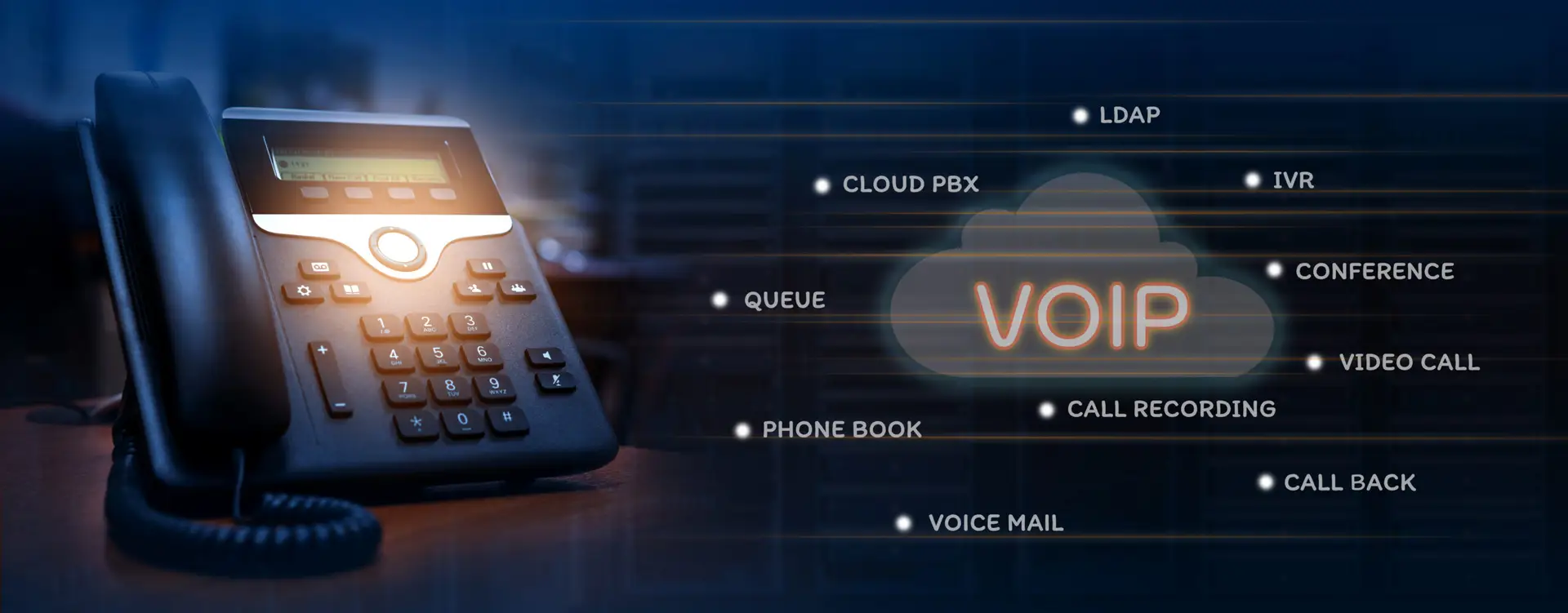One of the main reasons VoIP phone systems are ideal for small to midsize businesses is that you can make the switch without a significant upfront investment. However, you have more options when it comes to VoIP than you did with your traditional landline. You can choose to invest in your own equipment if you’d like more control over your system, or you can forgo purchasing and maintaining expensive equipment and use a third-party provider.
What Equipment Is Needed for Hosted VOIP?
If you don’t have an in-house IT department, or they’re already busy with other tasks, going with hosted VoIP is probably the best option. All you’d need to get started is basic internet equipment, like a modem and a router. You can then use any smart device to make calls, or you can use a special VoIP phone. Best of all, unlike an on-premises solution, your staff can access your hosted VoIP system from anywhere. Hosted VoIP is an ideal solution for hybrid and remote staff and can also easily accommodate frequent business travel.
Optional Investments
While you will be able to access your hosted VoIP system from anywhere on any smart device, using the technology you likely already have, you might want to make a few additional purchases, depending on how your staff makes and receives calls.
1. VoIP Phones
VoIP phones are special phones that use the internet to place calls. They don’t need a phone jack, but they’re otherwise familiar, and have functions like conference calling, call waiting, and do not disturb. However, unlike traditional phones, they can be used remotely without a complex installation process.
2. VoIP Headsets
Do your staff prefer to use headsets? You can also get VoIP versions to make calling more comfortable.
3. Upgraded Router and Modem
While you don’t need a specialized router and modem, VoIP systems will consume more bandwidth. You might want to consider upgrading these.
4. VoIP Adapters
If you like, you can use an adapter to keep using your traditional desk phone with new VoIP technology. These are formally called Analog Telephone Adapters (ATAs). You’ll be able to get more mileage out of your desk phones, and you won’t have to train your staff on new equipment.
5. PoE Switches
PoE stands for Power over Ethernet. These switches aren’t necessary, but they can make your workspaces look neater. PoE switches allow your phones to draw power through an Ethernet cable.
What Else Is Needed for an On-Premises VOIP System?
You can invest in your own on-premises VoIP system instead of using a third-party provider. However, it’s a significant upfront investment, and your staff won’t be able to use their work phones if they’re traveling or working from home. In addition to more expensive routers, VoIP gateways, additional software, and specialized hardware, you’ll also need an uninterruptible power supply.
The Best VOIP Phone System for Small Business
Most small to midsize businesses could save quite a bit of money and stress by switching to hosted VoIP. Traditional landlines are being retired, and it will be more and more difficult for you to repair the equipment that runs on them.
Hosted voice, also known as managed voice and cloud voice, is also the clear winner for companies with hybrid or remote staff.
Finding the Best VOIP Provider
The cloud opened a whole new world of opportunities for start-up businesses. However, when it comes to your phone system, there’s something to be said for a provider that’s been around for a long time and will be there for a long time to come.
At Tri-Copy, our managed voice solution keeps things as simple as possible. We will take care of network monitoring, service and troubleshooting, maintenance, upgrades, patches, security, and support desk assistance, so it’s one less thing for you and your staff to worry about.


